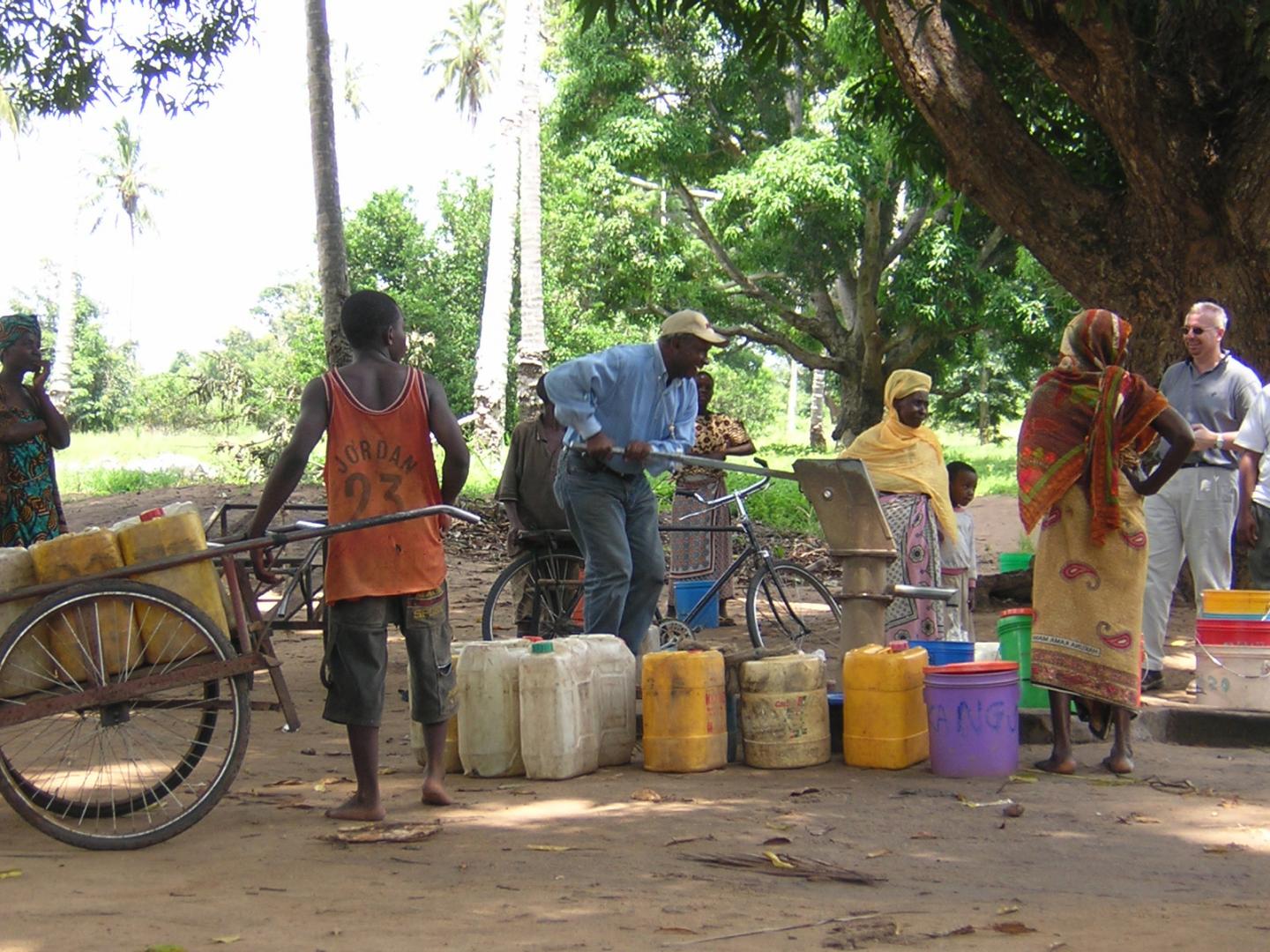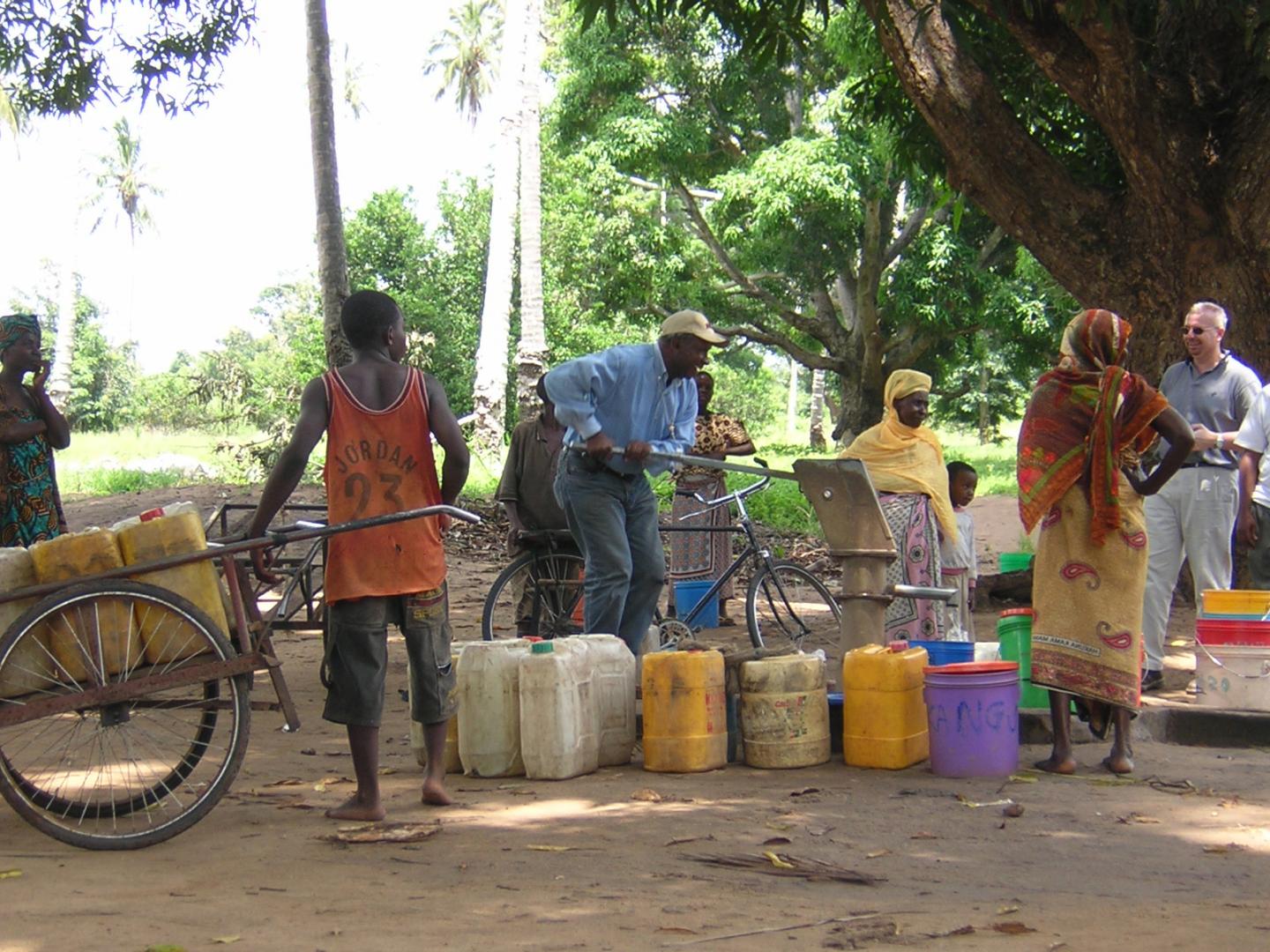
Credit: Medical University of South Carolina
The success of HIV treatment programs depends upon the identification, enrollment, and retention of HIV-infected individuals, but public health officials have learned that there are numerous barriers to such success at every point in this care continuum.
HIV-centric programs carry a stigma, patients' transportation to the HIV clinics can be a problem, and patients tire of repeat visits to learn whether they have become eligible for HIV treatment. Chronic noncommunicable diseases such as diabetes and hyptertension are another growing global epidemic, accounting for 38 million deaths annually, with three quarters of those deaths occurring in low- and middle-income countries.
Michael D. Sweat, Ph.D., professor of Psychiatry and Behavioral Sciences at the Medical University of South Carolina and director of the Center for Global Health, has worked with American and Tanzanian scientists and other colleagues since 1994 to study ways to increase HIV screening and care in Tanzania. Sweat is the principal investigator for the $3.1M NIH grant received in October by the Center for Global Health to study the integration of diabetes and hypertension screening into HIV screening. This study will evaluate the efficacy and cost-effectiveness of the novel integration of diabetes and hypertension screening and care with HIV screening and care. An earlier pilot study led by Sweat indicated that this approach is likely to increase HIV testing, a finding that is relevant throughout the world, including rural, impoverished areas of the U.S.
"Global health is everyone's health," said Sweat. "The greatest burdens of disease in the world–HIV, diabetes, and hypertension, among others–know no borders. This grant will enable us to discover better and more efficient ways to address these threats to health, no matter where they arise."
Sweat's institutional collaborators will be Clemson University's Department of Bioengineering, which has worked with Arusha Technical College in Tanzania in the past to develop low-cost health technology solutions for resource-poor settings, and Muhimbili University of Health and Allied Sciences, which will provide clinical services and collaborate on data collection and analysis.
"HIV and AIDS continue to be a huge problem in Tanzania," said Jessie Mbwambo, M.D., professor in the Department of Psychiatry and Mental Health at Muhimbili University of Health and Allied Sciences. "However, we cannot neglect other growing health needs such as diabetes and hypertension. We believe that by integrating diabetes and hypertension care with HIV care we can likely improve health in all these domains much more effectively and at a lower cost."
Delphine Dean, Ph.D., Gregg-Graniteville Associate Professor of Bioengineering at Clemson University, will direct the development of low-cost, diagnostic devices in her laboratory and provide technical support to the health clinics in Tanzania. Dean's laboratory recently developed a low-cost glucometer designed to print (on an inkjet printer) test strips on filter paper loaded with reagents to which a drop of blood is applied to determine the patient's blood sugar level. A patent on the glucometer was filed through the Clemson University Research Foundation.
"The lack of medical equipment, devices, and tests in resource-poor areas such as rural Tanzania limits clinicians' ability to diagnose and treat," said Dean. "By working together, we can improve accessibility to technology and improve global health."
Patient enrollment is projected to begin in the fall of 2017.
###
About MUSC
Founded in 1824 in Charleston, The Medical University of South Carolina is the oldest medical school in the South. Today, MUSC continues the tradition of excellence in education, research, and patient care. MUSC educates and trains more than 3,000 students and residents, and has nearly 13,000 employees, including approximately 1,500 faculty members. As the largest non-federal employer in Charleston, the university and its affiliates have collective annual budgets in excess of $2.2 billion. MUSC operates a 750-bed medical center, which includes a nationally recognized Children's Hospital, the Ashley River Tower (cardiovascular, digestive disease, and surgical oncology), Hollings Cancer Center (a National Cancer Institute-designated center), a Level 1 Trauma Center, and Institute of Psychiatry. For more information on academic or clinical services, visit musc.edu. For more information on hospital patient services, visit muschealth.org.
Media Contact
Heather Woolwine
[email protected]
843-792-7669
@MUSChealthPN
http://www.musc.edu




